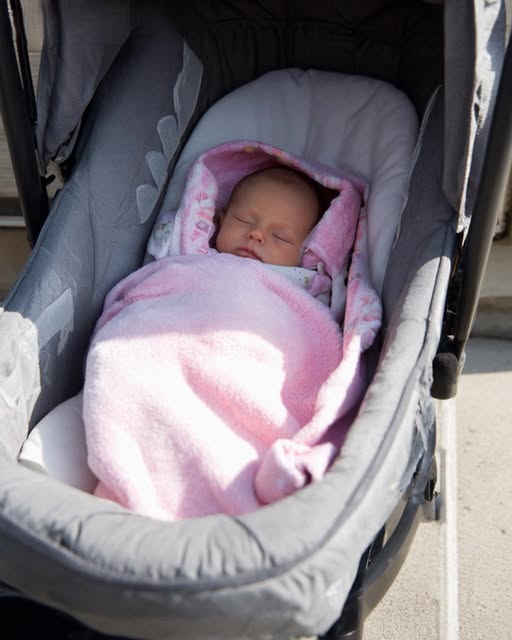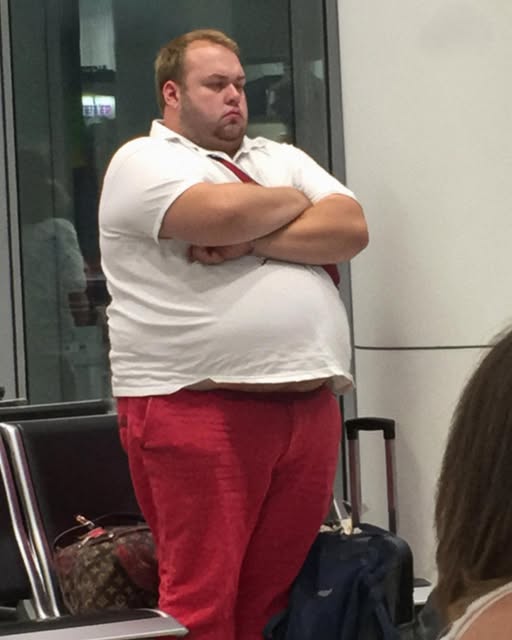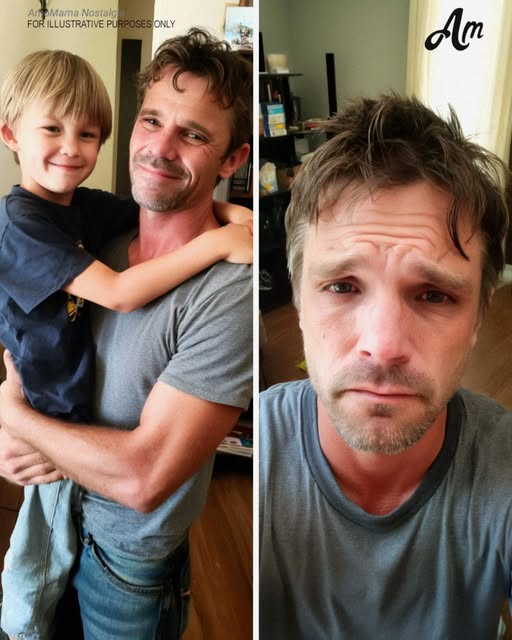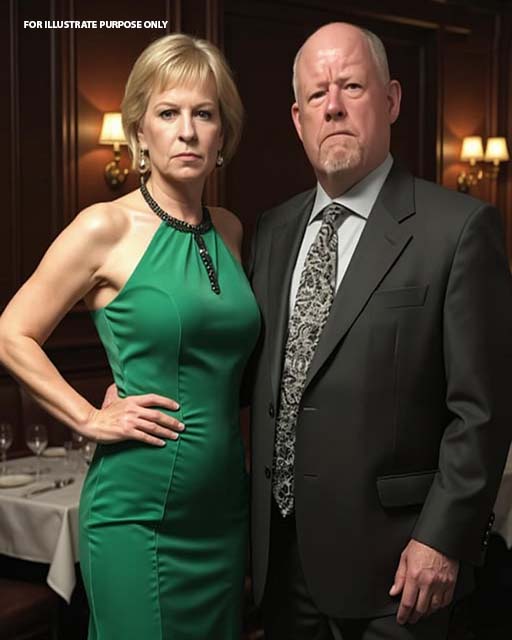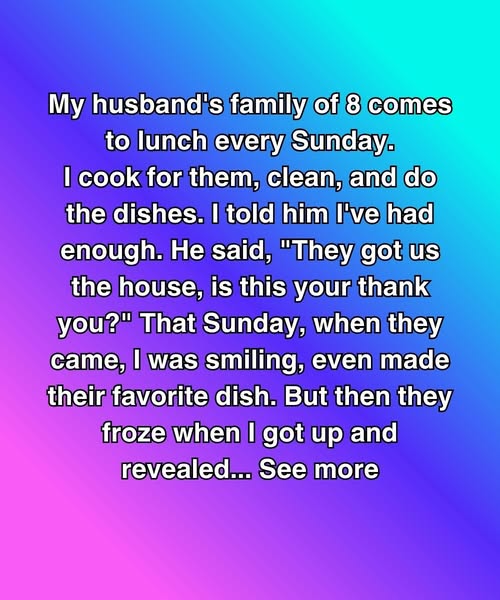I always thought my sister and I would be the kind of women who grew old side by side—sharing recipes, swapping hand-me-down Halloween costumes for our kids, finishing each other’s rants over coffee. Claire was the polished one, 38 and forever composed, the kind of person who made a grocery run look like a magazine spread. I was 34, chronically five minutes late, hair in a lopsided bun, heart on my sleeve. My life was loud, imperfect, and sticky with little fingerprints—Liam’s ceaseless questions, Sophie’s belief that butterflies understood her when she whispered. It wasn’t glamorous, but it was full.
When Claire married Ethan—forty, spreadsheets in his bones, a yard trimmed to military precision—I was genuinely happy for them. They had the house with crown molding and the espresso machine that did everything but write poetry. They also had an empty nursery. Years of trying had chipped at Claire’s brightness—IVF cycles like tides, hormone bruises blooming on her skin, miscarriages that turned rooms quiet. I watched the light dim behind her eyes in a way that made me ache.
So when she asked me to be their surrogate, I said yes before my brain could draft a pros-and-cons list. We did it the careful way—doctors explaining risks, lawyers sketching agreements, our parents asking hard questions. Every conversation ended with Claire’s hope rising like a dawn I didn’t want to miss. It felt right in a way I can’t fully explain—like standing in a doorway and knowing the room beyond will change you.
The pregnancy was kind to me. Nausea, yes. Swollen feet, yes. A sudden affair with pickles and ice cream, regrettably yes. But no dramatic 3 a.m. hospital runs. Claire didn’t miss a single appointment. She researched prenatal vitamins the way some people research luxury cars. She brought fruit smoothies and lists of baby names in her perfect handwriting. Ethan painted the nursery himself—soft yellow, floating clouds, neat little shelves for wooden animals. Their joy was infectious; every ultrasound photo went straight from the printer to their fridge, anchored by a tiny magnet shaped like a star.
I felt every flutter like a promise. I wanted that promise for Claire more than I’ve wanted anything I couldn’t hold with my own two hands. I’d rest her palm on my belly and tell her the truth: motherhood is the best kind of exhausting—soul-rewiring, world-tilting, nothing-the-same. She worried aloud that she might mess it up. I told her she wouldn’t. She had waited too long for this to be anything but devotion.
Nora arrived to the sound of our collective tears. Claire and Ethan were on either side of me, and when that first cry lifted into the air, I felt something inside me unclench that had been tight for months. “She’s perfect,” Claire whispered when the nurse laid the baby on her chest. Ethan touched one small cheek with a reverent fingertip. “You gave us everything,” he said. I told him, “She gave you everything.” The next morning, they buckled her into the car seat with the caution of new astronauts preparing for launch. Claire hugged me like she didn’t know how to let go. “You’ll visit,” she said, eyes shining. “Try and stop me,” I laughed.
The first two days home were a stream of photos—Nora asleep with a pink bow, Nora tucked under Ethan’s chin, Claire smiling without that old, weary sadness. I texted hearts and exclamation points. And then, on day three, the messages stopped. By day five, my calls ghosted into voicemail. Newborn fog is real, I told myself. They’re sleeping in two-hour shifts. They’re busy falling in love. But unease has a whisper that doesn’t shut up.
On the sixth morning, while I stirred eggs and Liam quizzed me about black holes and Sophie tried to convince a moth on our window that it was a butterfly in disguise, I heard a soft knock. I wiped my hands on my jeans, opened the door, and the world tilted.
A wicker basket sat on the porch, catching the early light. Inside, wrapped in the same pink blanket from the hospital, was Nora—tiny fists, soft breaths, a face like a question I would spend my life answering. Pinned to the blanket was a note in Claire’s unmistakable handwriting: We didn’t want a baby like this. She’s your problem now.
My knees found the cold concrete before I realized I’d fallen. I called Claire with shaking fingers. She picked up. “What is this?” I choked out. “Why is Nora on my porch?” Her voice was sharp enough to cut. “You knew and didn’t tell us. The heart issue. We can’t handle that kind of responsibility.” Ethan murmured in the background. I stared at the sleeping curve of Nora’s cheek and said, “She’s your daughter.” Silence stretched, terrible and endless. Then Claire said, flat as stone, “We never signed up for damaged goods,” and hung up.
Nora whimpered, a sound so small and so human it snapped the trance. I lifted her close, breathing in the warm, milky scent of newness. “It’s okay,” I whispered into her knit cap. “You’re safe. I’ve got you.” I called my mom. She arrived twenty minutes later, took one look at the basket, pressed both hands to her mouth, and whispered, “Dear God, what has she done?”
We drove to the hospital. Social workers, police, the note tucked into an evidence bag like a bad dream. Doctors confirmed a congenital heart defect—surgery needed within months, not minutes. Not easy, but hopeful. “She’s strong,” one doctor told me. “She just needs someone who won’t give up on her.” “She has me,” I said. “She’ll always have me.”
The weeks that followed were a thicket of paperwork and sleeplessness—monitoring her breathing, kissing her forehead between blood draws, learning the cadence of heart murmurs and the rhythms of fear. Child Services opened a case. A judge granted me emergency custody. The court moved to terminate Claire and Ethan’s parental rights. I signed forms with hands that didn’t feel like mine and learned to feed Nora with the patience of a tide—over and over, until the sea itself obeyed.
On the morning of her surgery, I sat in a too-bright hallway clutching her blanket. Time crawled in gritty inches. When the surgeon finally pulled down his mask and smiled, it felt like the air remembered how to move. “She did beautifully,” he said. “Her heart’s beating strong now.” I cried in the open, not caring who saw.
Five years can pass quietly when you’re busy living them. Nora is kinetic joy—painted butterflies on the walls when I’m not looking, songs composed out of daylight, a dancer whose feet seem to know the kitchen tile by heart. At kindergarten pickup, she tells everyone her heart “got fixed by magic and love.” Every night, she presses my hand to her chest and asks, “Can you hear it, Mommy? My strong heart?” I always can. It’s the sound of a promise kept.
Life, being life, tangled its threads elsewhere. A year after the porch, Ethan’s business collapsed—bad bets turning into bankruptcy notices. The perfect house with the perfect nursery belonged, suddenly, to someone else. Claire’s health faltered—not a catastrophe, but enough to slow her gait and tighten her world. My mother told me Claire wrote a long email once, an apology she said I should read. I didn’t. Not out of spite, but because what I have doesn’t require permission or closure. Some doors you don’t re-open, even for a breeze.
Nora calls me Mom now. Sometimes I think about the note—its meanness, its fear. How small it looked pinned to a blanket, trying and failing to define a child who would one day sprint through sprinklers and laugh so hard she’d hiccup. Love isn’t a purchase order you cancel when the specs surprise you. It’s a daily verb, a thousand small choices, a hand held through the beep of a monitor at 3 a.m. It’s showing up—not because it’s easy, but because it matters.
I carried my sister’s baby for nine months. I thought I was giving Claire a gift she couldn’t give herself. In the end, the gift was waiting on my porch, swaddled in pink, with a heart that needed mending and a future that needed someone stubborn enough to believe in it. I gave her life. She gave mine meaning. And every time she laughs with her whole face, head tossed back, eyes bright, I hear the universe hum a steady truth: the best kind of justice is love that refuses to quit.
